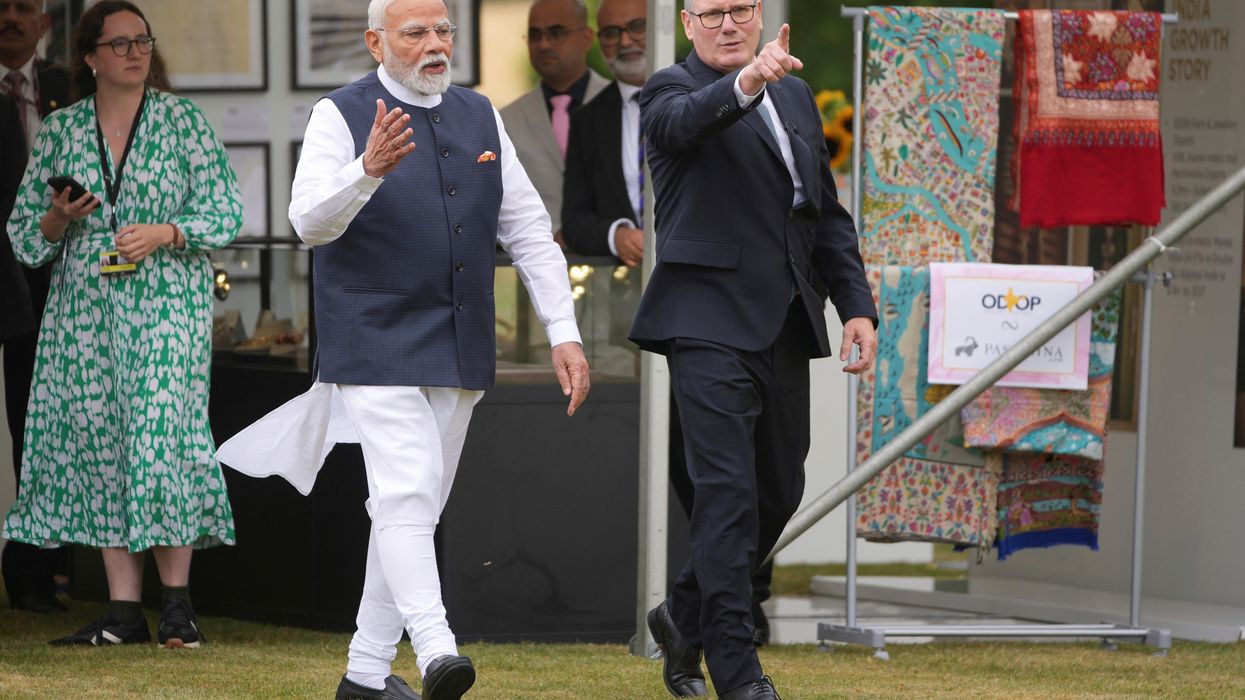THE India-UK free trade agreement signed on Thursday (24) has been hailed by Indian business and industry leaders as a “transformational milestone” for trade.
Following his talks with Starmer, Modi described the “historic” deal as the start of a new chapter in bilateral relations, which will greatly improve the ease and confidence of doing business between the two countries.
Sunil Bharti Mittal, founder and chairman of Bharti Enterprises and co-chair of the India-UK CEO Forum, who accompanied Modi as part of the Confederation of Indian Industry (CII) delegation, said businesses in both countries stand to “gain tremendously” from the agreement.
“Indian industry across all sectors welcomes the India-UK FTA with great optimism. This agreement establishes a modern, forward-looking partnership that will stimulate innovation, improve market access, and encourage investment,” said Mittal.
“Businesses in India and the UK will benefit greatly, as the deal lays the foundation for expanding cooperation across key growth sectors."
Once implemented after British parliamentary approval, the deal is expected to lower trade barriers, boost investor confidence, and encourage joint ventures and technology transfers, particularly in labour-intensive industries such as textiles and apparel, leather goods, gems and jewellery, and marine products.
The agreement also opens up new opportunities in clean energy, digital technology, life sciences and advanced manufacturing.
According to the CII, India’s rapidly growing market and manufacturing strengths combined with the UK’s expertise in innovation, finance, and high-end services will further accelerate economic ties.
Another significant benefit of the FTA is a reciprocal social security agreement, allowing Indian professionals in the UK to continue contributions in their home country for up to three years.
“CII has long advocated for a comprehensive and forward-looking India-UK free trade agreement. This FTA marks a defining moment, showing our shared commitment to inclusive growth, economic resilience, and industrial transformation,” said Chandrajit Banerjee, CII director general.
“It creates a strong foundation for deeper market access, regulatory cooperation, and next-generation partnerships between Indian and UK businesses,” Banerjee added.
Kirit Bhansali, chairman of the Gem & Jewellery Export Promotion Council (GJEPC), called the trade deal a “landmark accord” unlocking exciting opportunities for the gems and jewellery sector.
“Currently, exports to the UK are £750 million; with duty concessions, this is expected to rise to around £2 billion within three years, raising overall bilateral trade in this sector to an estimated £5.5bn,” said Bhansali.
From the UK side, Rolls-Royce Plc’s chief executive welcomed the “landmark” agreement in bilateral cooperation.
“Rolls-Royce is expanding its aerospace capabilities in India, and we look forward to working with partners there to co-develop power and propulsion technologies for India and beyond, building on 60 years of successful technology transfer. This will create jobs and foster technology and manufacturing growth,” said Tufan Erginbilgic.
Nik Jhangiani, interim chief executive of Diageo, welcomed the reduction of alcohol tariffs from 150 per cent to 75 per cent, with a further long-term reduction to 40 per cent.
“This agreement is a great moment for both Scotch whisky and Scotland. We’ll be raising a glass of Johnnie Walker to everyone who worked hard to achieve it,” said Jhangiani.
Jean-Etienne Gourgues, chairman and CEO of Chivas Brothers, added: “The signing of the UK-India FTA offers hope in challenging times for the spirits industry. India is the world’s largest whisky market by volume, and improved access will be a game changer for our brands like Chivas Regal and Ballantine’s.
“The deal will support long-term investment and jobs at our distilleries in Speyside and bottling plant at Kilmalid, helping growth in both Scotland and India over the next decade. We hope both governments will ratify the deal quickly so businesses can begin implementation.”
(PTI)





